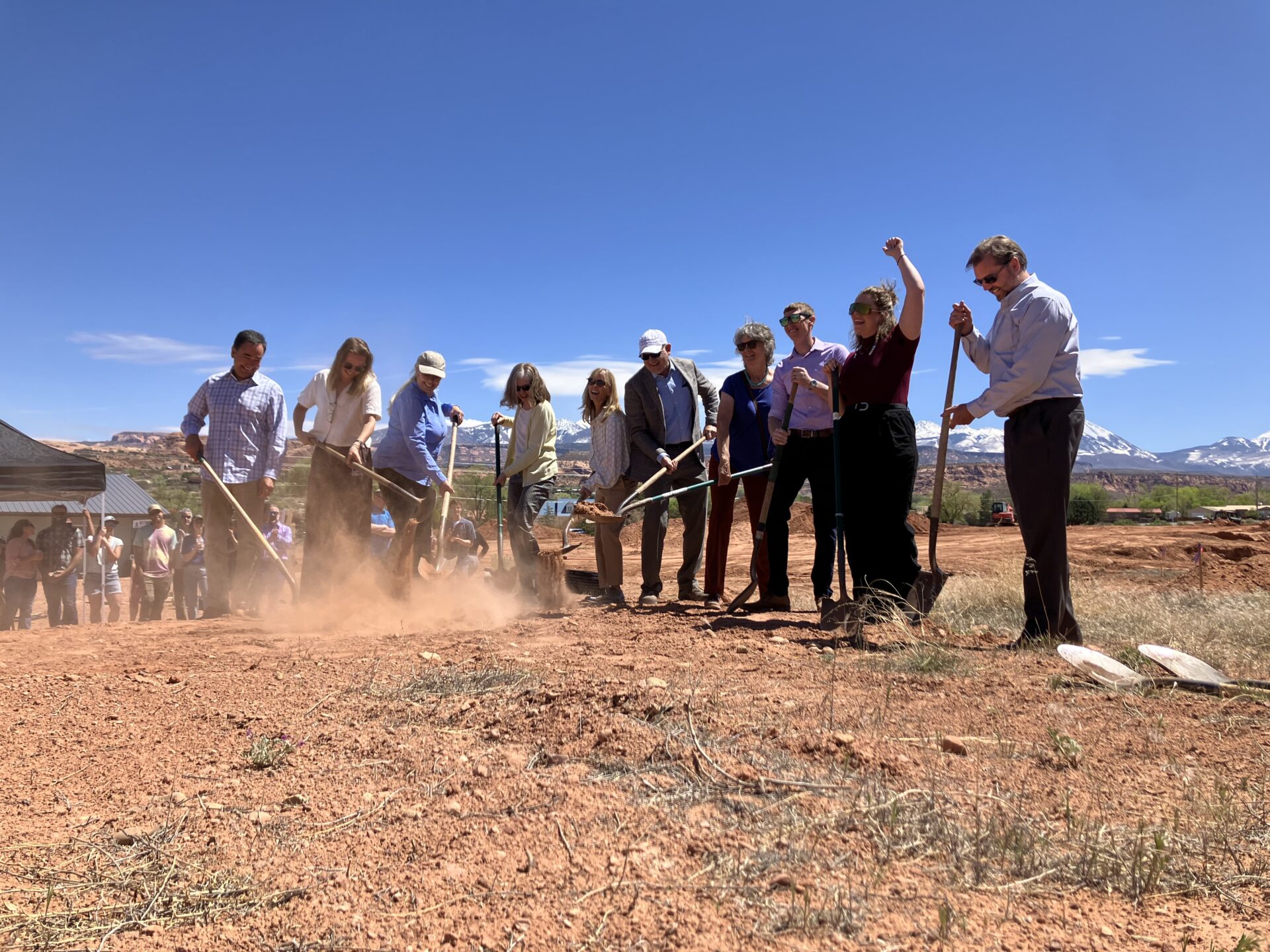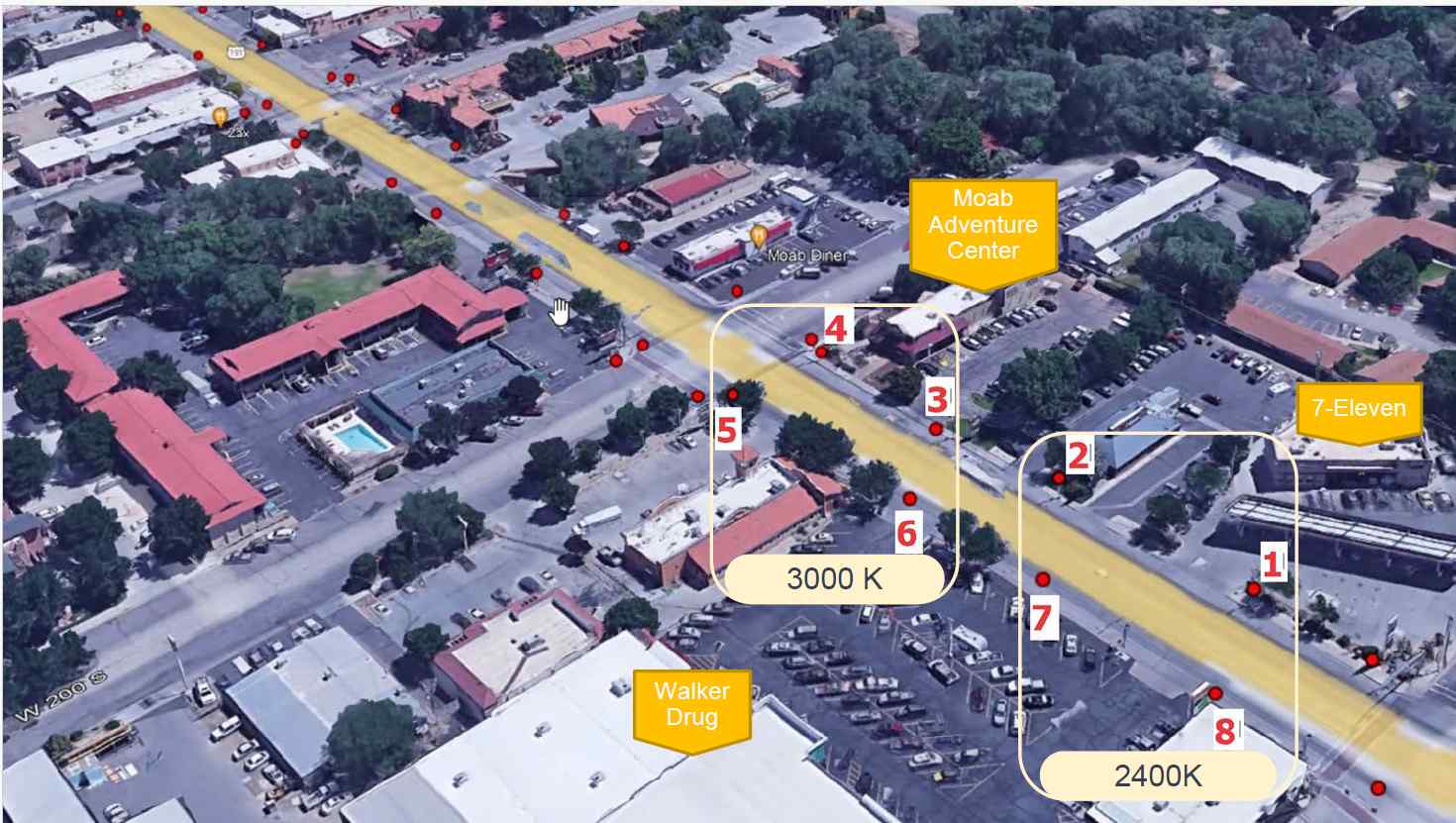The Moab City Council held a special joint meeting with the City Planning Commission on April 14, followed by the regular City Council meeting. The joint meeting focused on the Overnight Accommodations Development Standards that the two bodies have been working on for months. During the regular council meeting, councilmembers discussed updates on the COVID-19 pandemic and how the related closures and restrictions have, and will continue to, affect the city’s budget.
Joint Meeting
Before the onset of COVID-19, city staff and officials had been drafting a set of Overnight Accommodations Development Standards to be applied to the city’s Resort Commercial Zone. The standards were to mirror a similar set of standards passed by the County Council earlier this year, and the city council hopes that the strict parameters will help regulate the growth of new overnight accommodations. City Planner Nora Shepard presented to the council a set of “overarching questions” about the aim and direction of the standards.
“There’s still a fair amount of work to do,” she said. “I wanted to make sure that we’re all on the same page.”
She asked council members if they are still interested in pursuing the standards, if it is a priority, and if councilmembers still consider the standards to be a viable way of regulating new overnight accommodations in the RC zone.
All councilmembers assured the planning commission that they are still interested in completing the standards, especially considering how much work has already been invested in the project. They all acknowledged, however, that the pandemic has forced a change in priorities. Councilmembers Mike Duncan and Rani Derasary expressed some hesitancy about committing to only using strict development standards to regulate the construction of new hotels, saying there may be a need for a more direct form of “metering.”
“The public interest in this is not so much the nuances of building design,” Duncan pointed out, “but the sheer number of them and the amount of traffic they’ll invite.” He was concerned that setting development standards to just the right level to allow for some new development, without allowing an unlimited number of new projects, will be tricky.
Shepard went on to ask the council, given that they are still interested in completing the standards, what they cared about most within the design standards. The parameters cover a range of building elements, setting minimum and maximum thresholds and offering incentives for desired elements. Energy production, water management, transportation, parking, and traffic plans, spaces devoted to commercial or public use, and building and project size and height are all outlined in the standards.
“What kinds of benefits do we want for the community in exchange for additional overnight accommodations?” Shepard asked.
The most popular answer among both councilmembers and planning commissioners was “mixed-use”: they want to make sure that new overnight accommodation establishments provide for other types of economic and civic activity that will serve city residents and diversify the economy. However, the choice wasn’t universal: councilmembers also noted that housing, transportation, and energy are also important areas.
COVID-19 update
Mayor Emily Niehaus reported on meetings she’s attended with the Utah League of Cities and Towns, which is tracking bills brought before the state legislature in the special session currently being held. Niehaus said there are 21 items being discussed, but there are a few that pertain particularly to the Moab area. One regards how federal funds from the CARES Act stimulus package are distributed to small cities like Moab.
“The League has been advocating on our behalf to equally distribute among cities and towns,” Niehaus reported.
She also noted that there may be a new stimulus package in the future that allocates funds specifically for cities and towns.
Another item being discussed at the state level is the leadership of local health departments and the requirements governing local authority in emergencies, including pandemics.
“There is a big push to consider taking some of that power away from local health departments, and the League is going to do what they can to not let that happen,” said Niehaus.
City Manager Joel Linares gave updates on the ongoing COVID-19 response. The Southeast Utah Health Department is extending the standing public health order through May 4. Restrictions on lodging will remain unchanged; restaurant restrictions will change to align with the current order from the government, which still does not allow dining-in, but patrons may enter restaurants to place orders.
Other kinds of businesses who submit mitigation plans to the health department and are approved could resume partial operations according to those plans.
For example, Linares said, the Moab Golf Course has reopened.
“We’re trying to figure out how to move back to a more normal situation,” he said. “Obviously not ‘normal,’ but start moving in that direction.”
Moab Regional Hospital CEO Jen Sadoff added her updates, noting that testing capacity for COVID-19 has expanded, and anyone with any one or more symptoms should request testing. Symptoms include coughing, fever, and shortness of breath, and now officially also include muscle aches and loss of taste or smell.
Rachel Stenta, the outgoing city finance director, reviewed the city’s budget, noting that the loss of tourism this spring will mean a significant loss in revenue for the city. She displayed graphs showing that 54.3% of the city’s total revenue comes from sales tax, and between 85 and 87% of the city’s General Fund comes from sales tax revenue. Under the necessary social distancing restrictions, sales taxes have dropped dramatically.
Other items
The council unanimously passed a change in alcohol licensing procedure. Previously, the state of Utah granted cities the authority to regulate and license the sale of 3.2% beer in the city. However, changes at the state level have made city licensing redundant. A state license is now required for the sale of all alcohol including beer, and the criteria to obtain that license is the same as that the city required. Also, beer sales in Utah are no longer limited to 3.2%. The new procedure for alcohol licensing still requires applicants to gain the city’s approval before applying for a state license, but they don’t need to obtain both a state and city permit.
The council set a special meeting to appoint representatives to the new Arches Hotspot Funding Committee, which will produce new ideas for how to spend the funds allocated from the Utah Department of Transportation. The funds were initially intended for a downtown parking structure, but community members and leaders have decided to reconsider that project. The meeting to appoint committee members will be Thursday, April 16 at 1 p.m.
Niehaus announced a proclamation establishing a “Neighborly Salute” in Moab.
“There’s been concern among our community for our elderly population, for our neighbors,” Niehaus said. “There’s concern about how people are doing, about people being isolated, and not getting out, just for a moment, each day.”
To address this isolation, the city is encouraging Moabites to go outside at 6 p.m. every evening to share a moment with their neighbors, “as a tangible and daily way for residents to connect in person, while still practicing social distancing.”
“Go outside and wave and shout words of greeting and support,” Niehaus said.
Municipal work carries on amid COVID-19
“Go outside and wave and shout words of greeting and support.”
– Emily Niehaus



